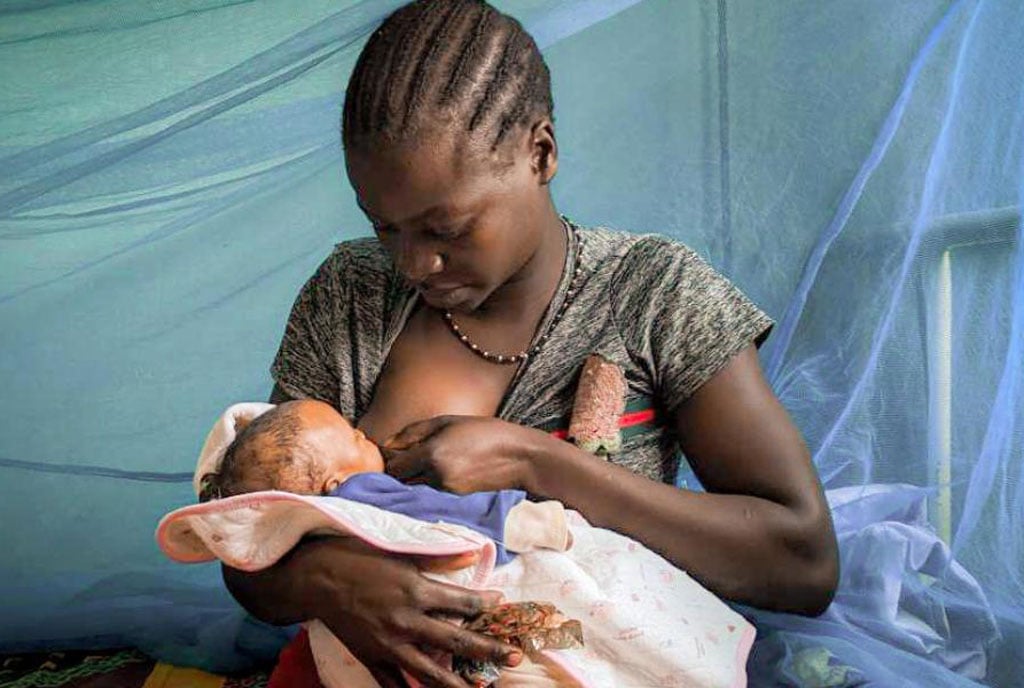Govt pushes for six-month maternity leave

The Country Director of Action Against Hunger, Ms Ritah Kabanyoro, with Mr Munir Safieldin, the Unicef country representative, during the breastfeeding conference in Kampala on August 1, 2023. PHOTO/MICHAEL KAKUMIRIZI
What you need to know:
- Officials say this would encourage exclusive breastfeeding, which would check malnutrition among children.
Employers in public and private sectors should consider increasing maternity leave for working mothers from three to six months to promote exclusive breastfeeding, an official from the Ministry of Health has said.
Speaking at the launch of this year’s breastfeeding week held in Kampala yesterday, the assistant commissioner for nutrition at the Ministry of Health, Ms Samalie Namusoke, said exclusive breastfeeding would check malnutrition among children.
Ms Namusoke said the number of women in Uganda who exclusively breastfeed their babies has declined from 66 percent in 2016 to the current 63 percent, mainly due to limited time employees spend with their babies.
“Maternity leave should be increased from three months to six months. It has been documented that increasing the number of maternity leave days will avert infant mortality by 13 percent while exclusive breast feeding averts infant mortality by 50 percent,” Ms Namusoke, who shared that she breastfed her last born for about four years, said.
According to the World Health Organisation (WHO), exclusive breastfeeding is when an infant is only fed on the mother’s breast milk for the first six months.
Ms Namusoke also revealed that only 78 percent of mothers in Uganda breastfeed babies within the first hour of delivery, 72 percent breast feed up to one year and only 33.8 percent breastfeed for two years.
She said complementary foods should be introduced at six months but mothers should continue breastfeeding until their babies are two years old.
She also said mothers living with HIV/Aids, whose babies are negative of the virus, should also practice exclusive breastfeeding in the first six months and continue breastfeeding up to one year, while those whose babies are HIV positive should continue breastfeeding them up to two years for proper growth and development.
She revealed that currently, 44 percent of babies in Uganda are anaemic, 24 percent are stunted, 3.2 percent are wasted while 7.8 percent are underweight.
Ms Namusoke also said employers should provide facilities for mothers to breastfeed and space where their babies, who are between three and 36 months old can stay, when their mothers are working.
Mr Ismail Kalanda, a principal officer in the Ministry of Gender, Labour and Social Development, acknowledged that the three months given to mothers were inadequate and that the government is developing and reviewing policies to address such gaps.
“They are given three months but they normally utilise one month before delivery. The two remaining months cannot enable them to practice exclusive breastfeeding,” Mr Kalanda said.
He said the Employment Act is being reviewed and that there is a section that will cover the issue of breastfeeding at workplaces. He said employers who do not comply will be penalised.
Ms Christine Nakimwero Kaaya, the Kiboga Woman Member of Parliament, who doubles as the secretary of the Parliamentary Forum on Food and Nutrition, said men should desist from making negative comments about the shape of breasts for breastfeeding mothers so that young women are not discouraged from breastfeeding.
Dr Munir Safieldin, the Unicef representative to Uganda, said malnutrition is a major health challenge in development countries such as Uganda and that low levels of breastfeeding are a major trigger.
“Even when we change maternity leave days, they will continue facing challenges because the majority of women work in the informal sector, which is not regulated. Advocating for stronger maternity protection and breastfeeding friendly policies can help breastfeeding to continue beyond the early months,” he said.




